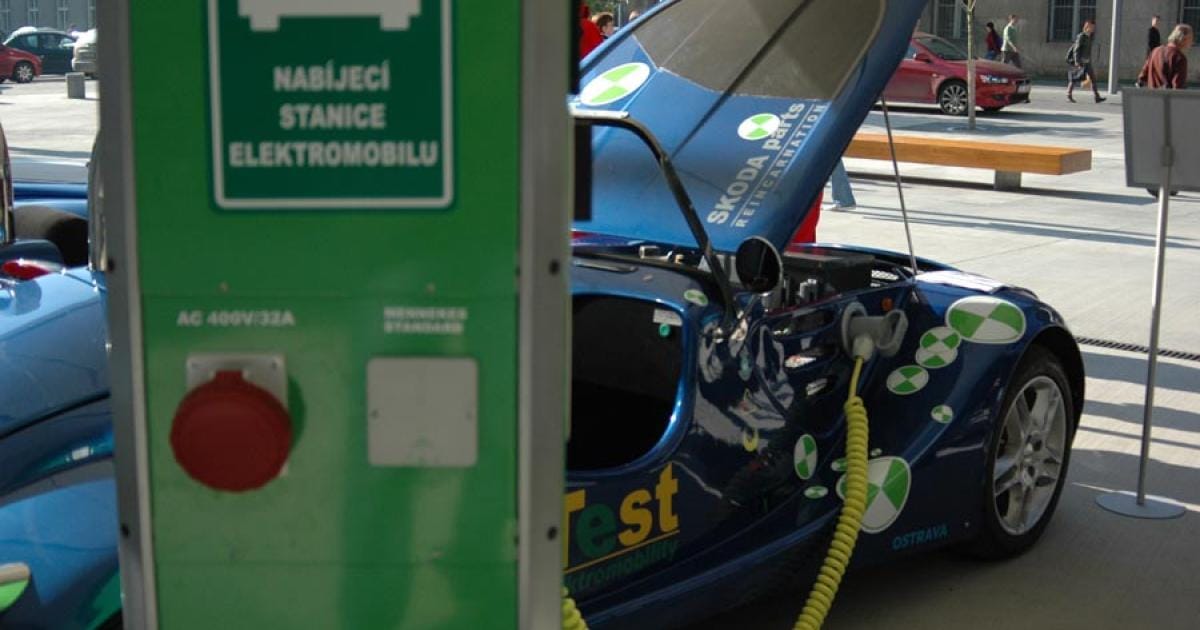You are in the minority in Czechia in having an electric car. Why do you have one? What’s the advantage for you?
“I’ve always followed the development of electric cars. I’m a very enthusiastic biker and when biking, especially in cities – and you know how Prague is called with cars – I know that the air I’m breathing around the cars is not very nice, with all the small particles and things which get stuck in your lungs. Sometimes you feel like you’re standing behind a steam engine when some cars produce especially dirty fumes.
“I also read a lot about the oil economy and all the environmental costs of oil mining. After the Russian invasion of Ukraine, of course, the issue was stuck on my mind. Every time I was refuelling my old car, I was thinking about how much of the payment goes to Russia and how much I’m supporting the Russian regime.
“So all these combinations, together with the fact that I have solar panels at our weekend house and these panels produce quite a huge quantity of energy, which I wasn’t able to tap fully, contributed to my decision to buy an electric car.”
But having an electric car in this country also comes with some inconveniences. How do you, for example, charge your car? Is that easy around Prague?
“That’s easy when you live in Prague. It’s super easy because the charging network is relatively dense. I would say, paradoxically, having a low density or low number of electric cars gives you an advantage, because you don’t experience the kind of little fights for a charging space that are more typical for cities with many more electric cars, like in Western Europe. So, from this perspective, it’s not so bad.
“The charging network could be a little bit denser in some rural areas, of course. I would say the biggest inconvenience is the kind of jungle which is out there with different providers of charging. Because if you don’t have a huge collection of charging cards, these different apps on your mobile phone, you’re going to pay much more money when traveling long distances and charging with one card or several cards at different providers, because they give you much higher prices when you are using the so-called roaming system.”
Speaking about the country more generally, we have this bit of news of an uptake in electric cars in Czechia. It’s been reported that around 140% more new passenger cars were registered this year compared with last year, which puts Czechia at the highest position in the European Union. How do you explain this increase?
“First of all, we need to take into account that this is a relative increase from a very low base. I think last year, especially at the start, about just 3% of all cars sold in the country were electric. When this year the number is inching up towards 6%, it sounds like an enormous relative growth. But compared to Western European countries, the share of new cars that are fully electric is still very low.
“I think it’s the effect of things that are working in other places as well. Cars getting cheaper, the range is getting higher, people starting to know someone who owns an electric car and talking to them, not being so afraid to try something new. But the numbers are still low compared to, say, Austria or Germany.”
To summarise, it’s not that Czechia is overtaking the rest of the European Union in any regard, but rather just catching up?
“Definitely. We have places like some Nordic countries where close to 100% of new cars being sold are electric cars. I think Germany is around 15 to 20%, or slightly over 20%. So with the current 5-6% in Czechia, there is still a long way to go to catch these countries up.”
